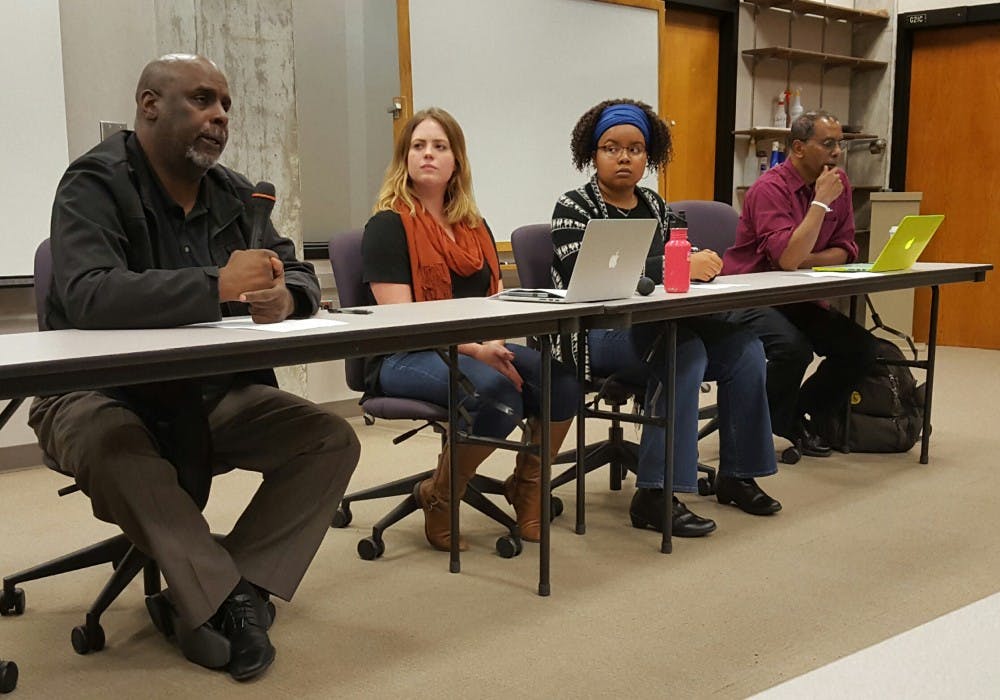Black Lives Matter is an ideological and political intervention in a world where Black lives are systematically and intentionally targeted for demise, according to blacklivesmatter.com. It is an affirmation of Black folks’ contributions to this society, humanity, and resilience in the face of deadly oppression.
The Black Lives Matter movement was the topic of the Oct. 13 panel discussion on race and social justice.
The panel discussion took place during a social justice and q
“I wanted to make it a call to action for students, especially Ball State students who may not have much experience talking about Black Lives Matter and expressing it to people who don’t have any understanding of what Black Lives Matter is,” said Amber Janzen, organizer and
Janzen created the panel with her professor, Nihal Perera, in response to a request by classmate Paul Jones, a second-year master's student in urban and regional planning who felt the class should be more relevant to today’s current events.
“I got disgruntled and I said that, in layman’s terms, that we need to talk about current events if we’re going to learn about social justice,” Perera said.
The panel consisted of four people: Janzen, Perera, architecture professor Olon Dotson and sophomore advertising major Jada Burt.
Dotson, whose research covers disinvestment in inner cities and institutional abandonment, spoke about how his son was arrested in New Orleans on a Ball State field trip and charged with battery on a police officer, according to Louisiana State Police and the New Orleans Police Department.
Dotson’s son was handcuffed by three police officers while waiting to regroup with students from Ball State in the French Quarter. His son, who has no criminal history, was arrested in a drug sting, but he was not charged with any drug-related crimes. Dotson said his son was charged with battery when he refused to have his picture taken by the police, and the police claimed he kicked them.
“What I experienced in New Orleans after being there 22 times since [Hurricane] Katrina, doing volunteer work for that city and that community is that black lives don’t matter,” Dotson said. “Black Lives Matter has never suggested or even implied that all lives don’t matter. But there’s evidence in this country that black lives don’t, and what Black Lives Matter tries to explain is that black lives do matter.”
Dotson also addressed the one-bad-apple rhetoric that describes the number of officers who engage in police brutality.
“It’s not that we hate all police officers. It’s the collective shield and behavior of police as an entity and as a union, regardless of what happens," Dotson said. "You know, you can use this few bad apples reference all day, but when 100 percent of the officers support that bad apple, that becomes a problem."
Jessica Pettengill, a second-year graduate student in the emerging media design and development program, is not in the
“It’s kind of just been a topic of conversation that I don’t get to talk a lot about, mainly because I come from a pretty conservative household. So
Burt, who participated in the first protest of the National Anthem at Ball State’s first home football game this season, gave advice on how to start this dialogue within social circles.
“It all starts at home … racism is taught. People have to start these conversations with people that they’re close to and then branch out to others, because people typically aren’t going to listen to someone that they don’t agree with,” Burt said.
Although no more panels are planned, Janzen remains open to the opportunity of continuing the dialogue in the future.





